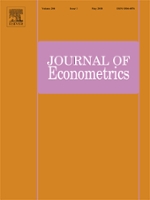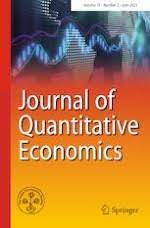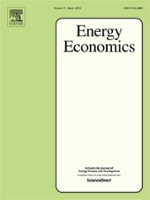- Ph.D., Yale University, 1995

Yoosoon Chang
Professor

Professor
Dr. Chang is a Professor of Economics at Indiana University with a Ph.D. in Economics from Yale University. She is an Advisor of the Stone Center for Research in Wealth Inequality and Mobility (SCRWIM) in the Harris School of Public Policy at University of Chicago, an Executive Committee member of the Institute of Korean Studies in the School of Global and International Studies at Indiana University, an Adjunct Researcher at the BI Norwegian Business School, and a Visiting Distinguished Fellow of Samsung Global Research (SGR). She previously served as the Head of the Department for the Department of Economics at Texas A&M University and the Director of Graduate Studies at Indiana University. Her other current professional responsibilities include her roles as the Coordinator of Midwest Econometrics Group (MEG), Organizer of Symposium of Econometric Theory and Applications (SETA), Co-organizer of the Workshop on Energy Economics, an Executive Committee member of Studies in Nonlinear Dynamics & Econometrics (SNDE), President-elect of Korea America Economic Association (KAEA), and a member of Editorial Board of Journal of Economic Literature, Associate Editor of Journal of Applied Econometrics, Journal of Econometrics, Journal of Time Series Econometrics and SNDE. She was a Visiting Professor at the University of Chicago, Keio University, BI Norwegian Business School, Fudan University, University of Tokyo and Yale University. She is the recipient of 2022 Maekyung-KAEA Economist Award, and an elected fellow of Journal of Econometrics and International Association for Applied Econometrics.
Dr. Chang’s current research interests include the application of various time series, panel data, and machine learning models to facilitate the implementation of frontier theories and methodologies for practically relevant inference in a broad range of macroeconomic and financial models. Her recent research focuses on functional time series, endogenous regime-switching models, high-frequency factor models and their applications in intergenerational mobility, policy effects on functional outcomes such as income distribution, temperature anomaly distribution, inflation forecast distribution, yield curve, and labor force participation profile. These studies help better address some pressing economic issues, including income-educational-occupational mobilities, policy effects on income inequality, climate change, effects of expansionary monetary and fiscal policies on inflation, borrowing costs of government, and job polarization. Her recent research also investigates monetary and fiscal policy interactions, income dynamics, expectation effects of switching financial market conditions, and empirical asset pricing models with macro factors. She has applied her new methodologies to analyze energy demand and longevity risk. Dr. Chang’s research has been published in Review of Economic Studies, Quantitative Economics, Journal of Economic Dynamics and Control, Journal of Econometrics, and Energy Economics, among others. Her work has been funded by the National Science Foundation, Bank of Korea, KEPCO, Korea Power Exchange, and the Norwegian Research Council.
Dr. Chang takes mentoring junior women economists seriously and has been playing a leadership role, either as an organizer or as a key participating mentor, in numerous mentoring events, including the MEG mentoring workshops, CeMENT workshops organized by the Committee on Status of Women in Economics Profession (CSWEP) of AEA, Finance and Economics Women (FEW), and Women Economists Networks of China, Japan, and Korea. She is also serving as the Chair of the Korean Women Economists Network (KWEN) and is a member of the International Advisory Board of the Association of the Advancement of African Women Economists (AAAWE).

Yoosoon Chang, Kaufmann, Robert K., Kim, Chang Sik, Miller, J. Isaac, Joon Y. Park, Park, Sungkeun
2020

Yoosoon Chang, Choi, Yongok, Kim, Hwagyun, Joon Y. Park
2016

Yoosoon Chang, Kim, Chang Sik, Miller, J. Isaac, Joon Y. Park, Park, Sungkeun
2014
The Influence of Fiscal and Monetary Policies on the Shape of the Yield Curve with Fabio Gomez-Rodriguez and Christian Matthes. RePEc. #2023-008 CAEPR Working Paper Series. Updated 08/2025
How Do Macroaggregates and Income Distribution Interact Dynamically? A Novel Structural Mixed Autoregression with Aggregate and Functional Variables with Soyoung Kim and Joon Park. #2025-002 CAEPR Working Paper Series.
Understanding Regressions with Observations Collected at High Frequency over Long Span with Ye Lu and Joon Park. Forthcoming, Quantitative Economics. #2025-001 CAEPR Working Paper Series.
Accounting for Individual-Specific Heterogeneity in Intergenerational Income Mobility with Steven N. Durlauf, Bo Hu and Joon Y. Park. #2024-008 CAEPR Working Paper Series.
Shocking Climate: Identifying Economic Damages from Anthropogenic and Natural Climate Change with J. Isaac Miller, Joon Y. Park. #2024-007 CAEPR Working Paper Series. (Slides)
Using Density Forecast for Growth-at-Risk to Improve Mean Forecast of GDP Growth in Korea with Yong-gun Kim, Boreum Kwak, Joon Y. Park. #2024-005 CAEPR Working Paper Series.
Common Trends and Country Specific Heterogeneities in Long-Run World Energy Consumption with Yongok Choi, Chang Sik Kim, J. Isaac Miller, Joon Y. Park. #2024-001 CAEPR Working Paper Series.
A Trajectories-based Approach to Measuring Intergenerational Mobility, with Steven N. Durlauf, Seunghee Lee and Joon Y. Park, NBER Working Paper No. 31020, SSRN. #2023-004 CAEPR Working Paper Series.
Oil and the Stock Market Revisited: A mixed functional VAR approach, with Hilde Bjornland and Jamie L. Cross. Revised and Resubmitted, Quantitative Economics. #2023-005 CAEPR Working Paper Series.
The Effects of Economic Shocks on Heterogeneous Inflation Expectations, with Fabio Gómez-Rodríguez and Gee Hee Hong, IMF Working Paper Series, July 2022.
Time-Varying Expectation Effects of Switching Financial Uncertainty, with Hwagyun Hagen Kim and Shi Qiu.
U.S. Monetary and Fiscal Policy Regime Changes and Their Interactions, with Boreum Kwak and Shi Qiu. Revised-and-resubmitted to Journal of Applied Econometrics.
Oil Price Volatility, Endogenous Regime Switching, and Inflation Anchoring, with Ana Maria Herrera and Elena Pesavento. Forthcoming at Journal of Applied Econometrics. Online Appendix
Origins of Monetary Policy Shifts: A New Approach to Regime Switching in DSGE Models, with Junior Maih and Fei Tan, Journal of Economic Dynamics and Control, 133, 104235, 2021.
Forecasting Regional Long-Run Energy Demand: A Functional Coefficient Panel Approach with Yongok Choi, Changsik Kim, Zack Miller and Joon Park, Energy Economics, 96 (2021), 105117.
Stock Market Return Predictability Dormant in Option Panels, with Youngmin Choi, Soohun Kim and Joon Park.
A New Approach to Model Regime Switching, with Yongok Choi and Joon Y. Park, Journal of Econometrics, 196, 127-143, 2017.
Nonstationarity in Time Series of State Densities, with Chang Sik Kim and Joon Y. Park, Journal of Econometrics, 192, 152-167, 2016.
Evaluating trends in time series of distributions: A spatial fingerprint of human effects on climate, with Robert K. Kaufmann, Chang Sik Kim, J. Isaac Miller, Joon Y. Park and Sungkeun Park, Journal of Econometrics, 214, 274-294, 2020.
Evaluating Factor Pricing Models Using High Frequency Panels, with Yongok Choi, Hwagyun Kim and Joon Y. Park, Quantitative Economics, 7, 889-933, 2016. An appendix and code are available in supplementary files on the journal website, http://qeconomics.org/ojs/index.php/qe/issue/view/101.
Disentangling Temporal Patterns in Elasticities: A Functional Coefficient Panel Analysis of Electricity Demand, with Yongok Choi, Chang Sik Kim, J. Isaac Miller and Joon Y. Park, Energy Economics, 60, 232-243, 2016. Supplemental materials can be obtained from (https://www.sciencedirect.com/science/article/pii/S0140988316302717).
A New Approach to Modeling the Effects of Temperature Fluctuations on Monthly Electricity Demand, with Chang Sik Kim, J. Isaac Miller, Joon Y. Park and Sungkeun Park, Energy Economics, 60, 206-216, 2016.